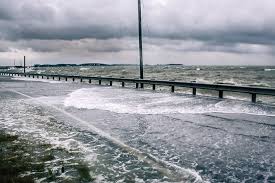Sea also rises: On understanding the Indian Ocean’s local impact
India must collaborate with countries of the Indian Ocean to invest in data gathering on warming
India may be roiling in heatwaves but the possibility of a munificent monsoon, as envisaged by the India Meteorological Department, may be contributing to some psychological relief. In the long run, however, there is much to be worried about. A recent study led by scientists at the Indian Institute of Tropical Meteorology, Pune, and other international institutions has forecast — based on expected global carbon emission trends — the likely impact on the Indian Ocean. They report that the Indian Ocean warmed 1.2°C and will likely heat up 1.7° C-3.8° C from 2020 to 2100. While heatwaves are a lived experience, the study warns of ‘marine heatwaves’, their counterparts in the sea and linked to the rapid formation of cyclones, as likely to increase tenfold from the current average of 20 days per year to 220–250 days per year. This will push the tropical Indian Ocean into a “near-permanent heatwave state”, accelerate coral bleaching and harm the fisheries sector. The heating of the ocean would not be merely confined to the surface but actually increase the heat content of the ocean. When measured from the surface to 2,000 meters below, the thermal capacity of this ocean is now rising at the rate of 4.5 zetta-joules per decade, and is predicted to increase at a rate of 16–22 zetta-joules per decade in the future. Joule is a unit of energy and 1 zetta joule is a billion-trillion joules (10^21).
The consequences of a warming Indian Ocean extend very much into mainland India with the frequency of severe cyclones rising and the monsoon becoming more erratic and uneven with long spells of drought followed by intense rain and concomitant flooding. These are linked to global warming with anthropogenic sources such as fossil fuel burning playing a significant role in nudging the planet closer to cataclysmic tipping points. Current global commitments to stem greenhouse gas emissions are unlikely to make a significant dent in the state of the oceans capacity as unlike on land, the seas respond slower to changes in external inputs. Therefore, a realistic way out is to fine-tune the understanding of the Indian Ocean’s local impact. India needs to form a collaborative association with countries bordering the Indian Ocean to invest in data gathering — currently this pales in comparison to what is in the Pacific, for instance — and projections to guide the development and protection of infrastructure and people.
